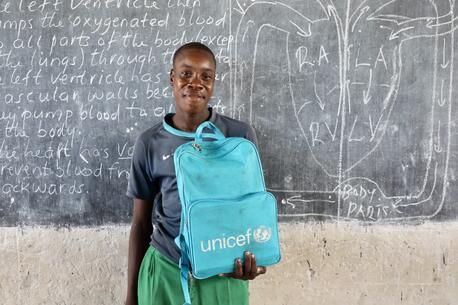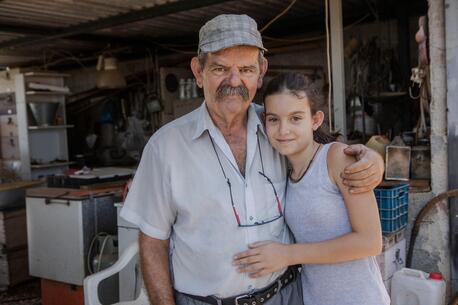
Heat Waves in Greece Endanger Bees and a Time-Honored Family Tradition
Eleven-year-old Markela represents her family's fifth generation of beekeepers — but soaring heat, drought and wildfires mean she may not be able to carry on the tradition for long.
Bees are a harbinger of environmental change
Since she was a young child, 11-year-old Markela has been a beekeeper in Neo Makri, Greece. Every week or so, she accompanies her grandfather, Markos Sakarikos, to check on the family's hives — looking for the queen bee, making sure the bees have enough food and treating them if they show symptoms of disease. She represents the family's fifth generation of beekeepers; the profession started with her great-great-grandfather more than a century ago.
Watch the video:
Bee populations are declining globally
But the climate crisis means Markela may not be able to carry on the family tradition.
When his own grandparents were beekeepers, Markos says, "The honey produced back then was so plentiful, I cannot even describe it."
But the climate has changed — and the health of the bees, and amount of honey, with it. "The bees have been decimated," Markos says.
Wildfires have burned the vegetation that bees, and the rest of the ecosystem, depend on. And then there are the droughts.
"The whole place has dried up, and there are no flowers," Markos says. "If [the bees] don't find flowers, if there is no blossoming stage, there is no pollen and no honey."
Bees are more than honey producers. They're both integral to ecosystems, and some of the first indicators of environmental health. In Greece, they sound the alarm about crippling heat waves, droughts and forest fires.
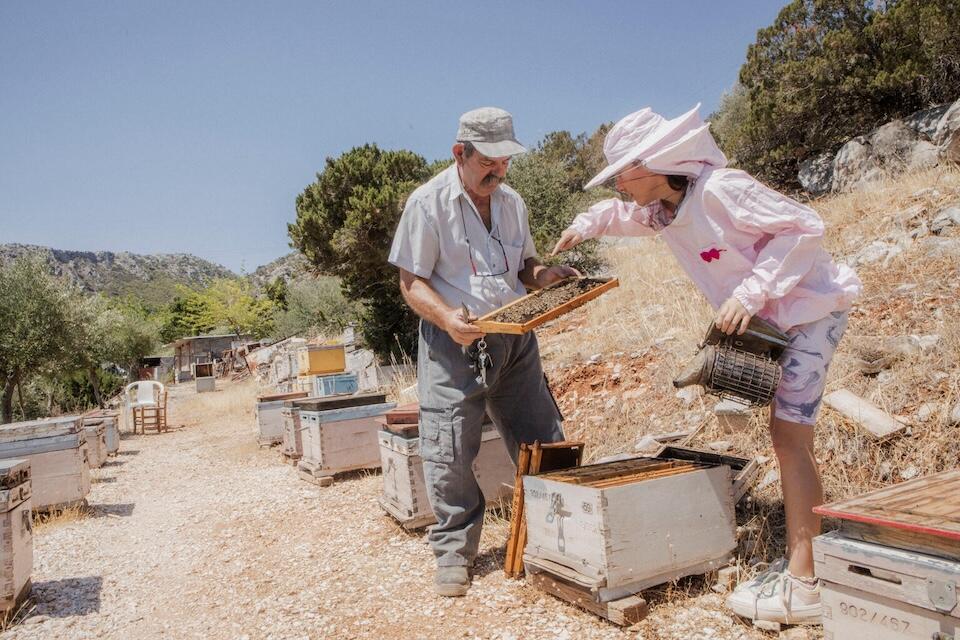
Urgent climate action is needed to protect children's health and safety
The bees' poor health worries Markela and her family. But she doesn't need to see the bee population weakening to know how much the climate crisis is impacting her area. "Almost every day, I see in the news about children having to flee their homes due to wildfires, and people dying in these fires," she says. "I am afraid."
Without coordinated, concrete actions to limit CO2 emissions, the wildfires, heat waves and droughts that Greece is seeing will get far worse. So will the health and wellbeing of the bees — and of children like Markela. Fine particulate matter (PM2.5) from wildfire smoke is up to 10 times more harmful to children's respiratory health than PM2.5 from other sources, particularly for children from birth to age 5. And its impact is worsened when it is hot outside. Not only are children more likely to develop asthma when exposed to extreme heat, but they are more likely to have asthma attacks when exposed to wildfire smoke.
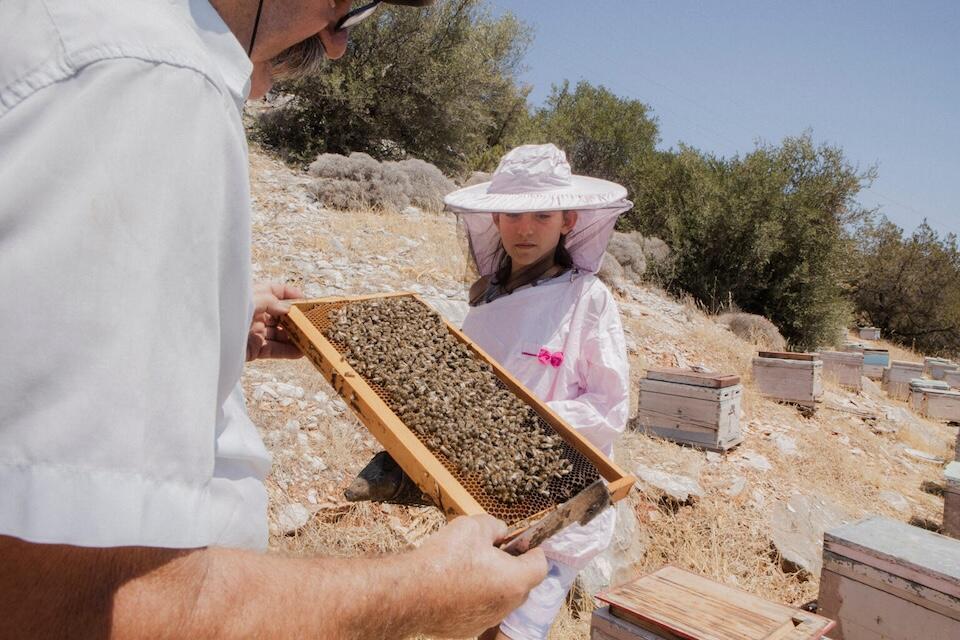
Cutting emissions will limit global warming
Governments need to institute holistic approaches to mitigate such harm, including by placing a strong primary health care response at the center of all climate change preparedness, mitigation, response and recovery efforts.
But the most important thing, say Markela and Markos, is to cut emissions to limit global warming to begin with.
"If the bees go extinct, that will be the end of the world," Markos says. "This is not my opinion, but the opinion of experts."
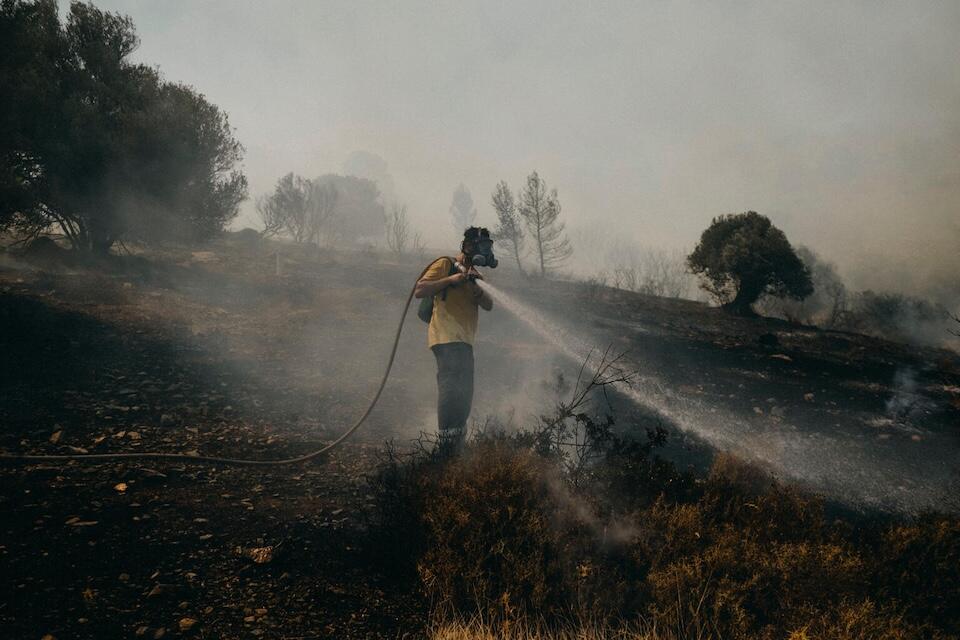
The climate crisis is a child rights crisis. Help UNICEF raise awareness, secure action and support youth engagement. Please donate today.
This story first appeared on unicef.org
HOW TO HELP
There are many ways to make a difference
War, famine, poverty, natural disasters — threats to the world's children keep coming. But UNICEF won't stop working to keep children healthy and safe.
UNICEF works in over 190 countries and territories — more places than any other children's organization. UNICEF has the world's largest humanitarian warehouse and, when disaster strikes, can get supplies almost anywhere within 72 hours. Constantly innovating, always advocating for a better world for children, UNICEF works to ensure that every child can grow up healthy, educated, protected and respected.
Would you like to help give all children the opportunity to reach their full potential? There are many ways to get involved.



